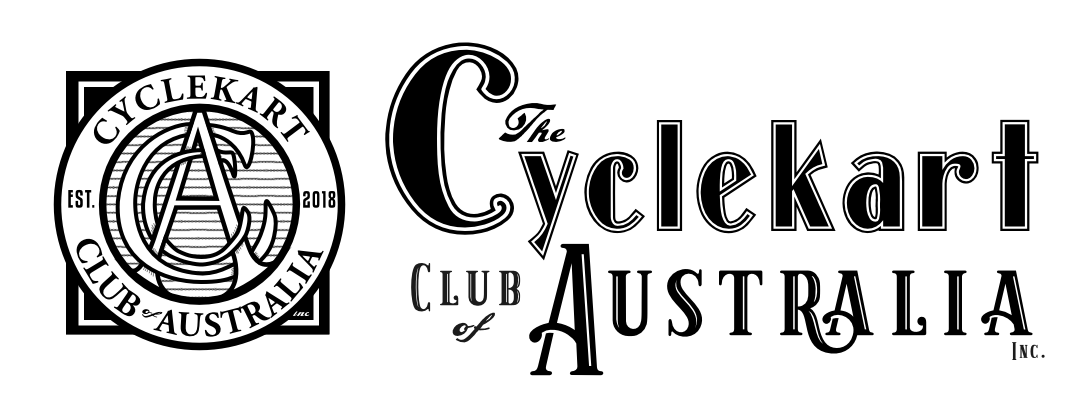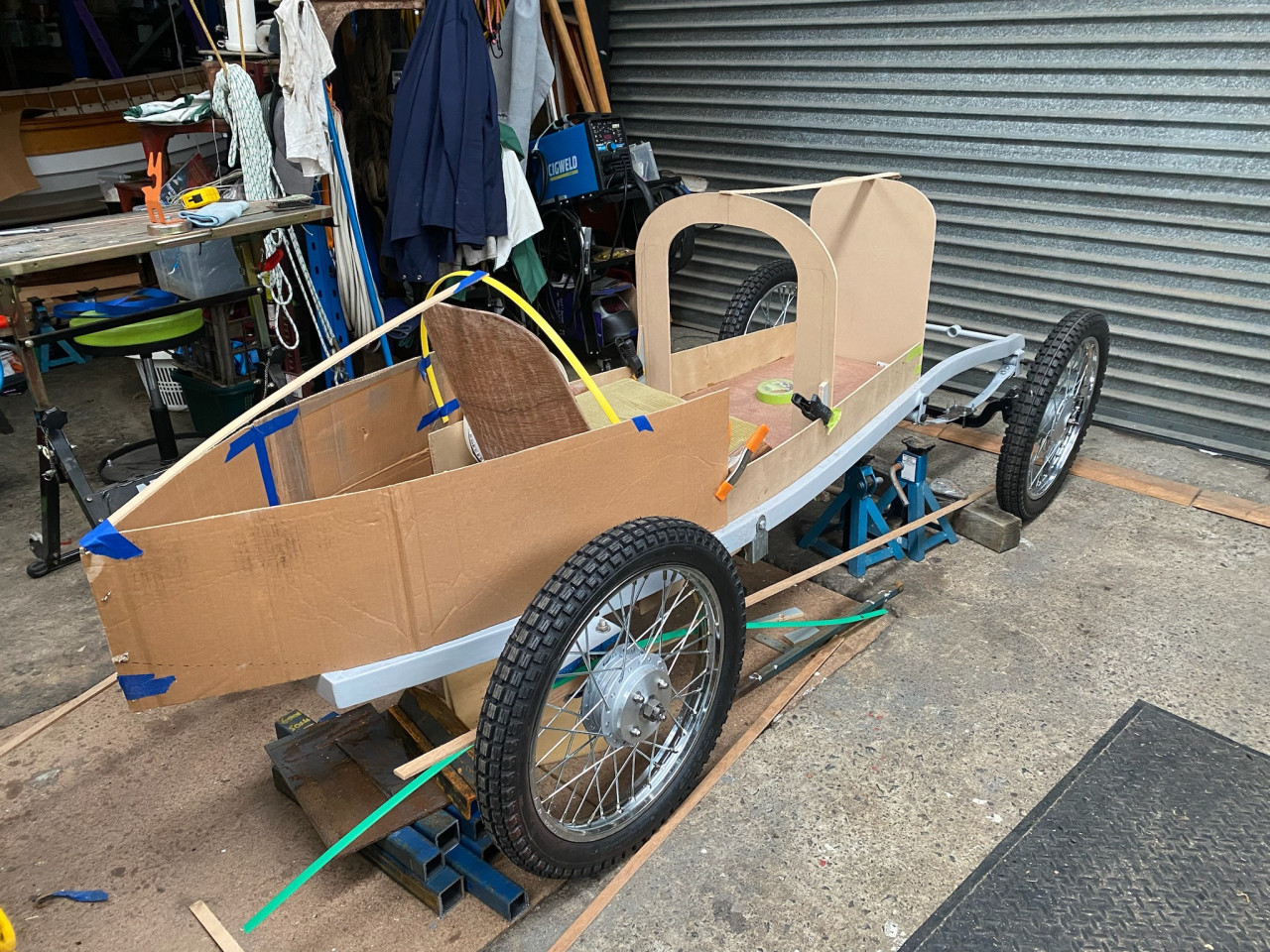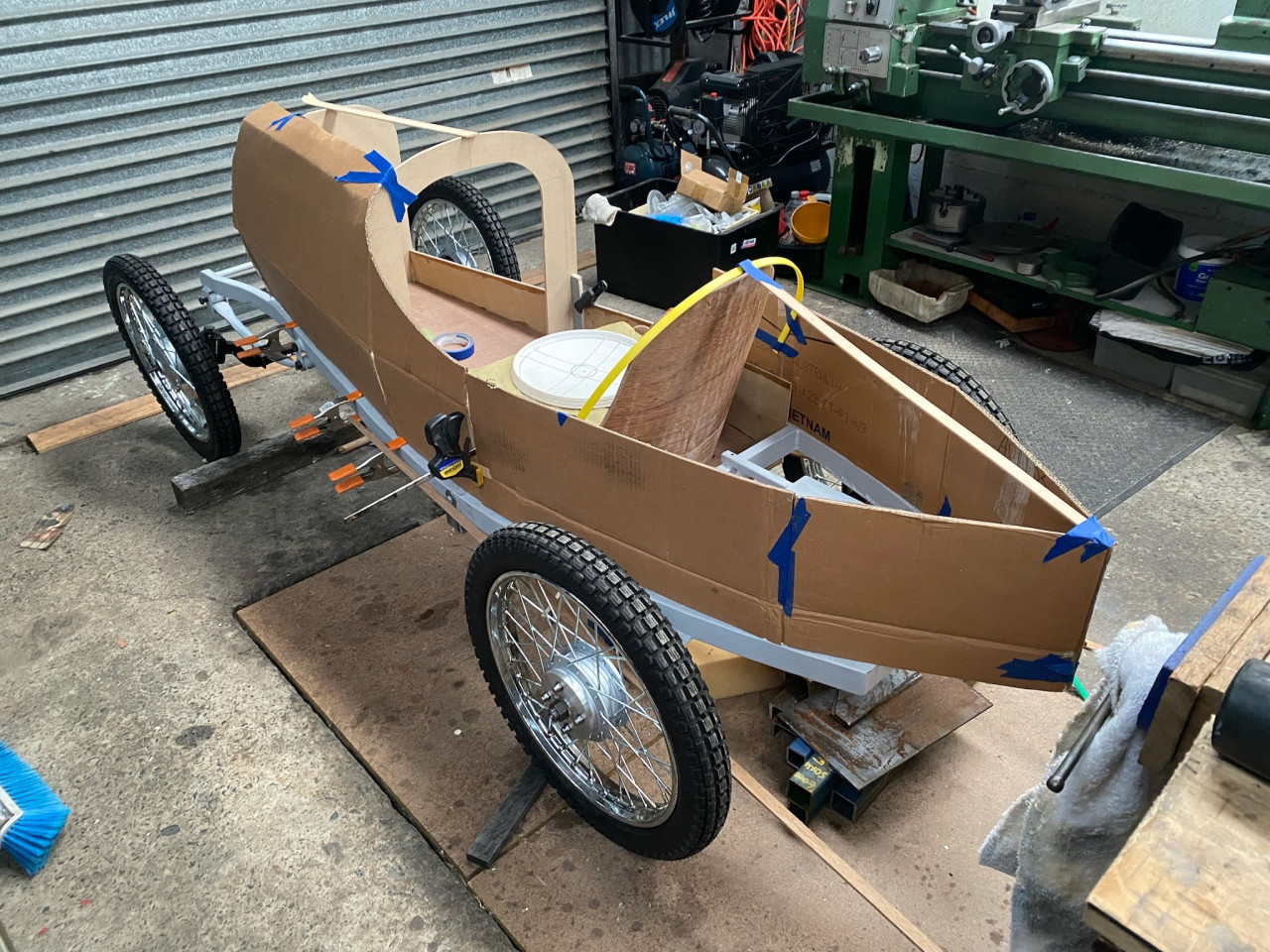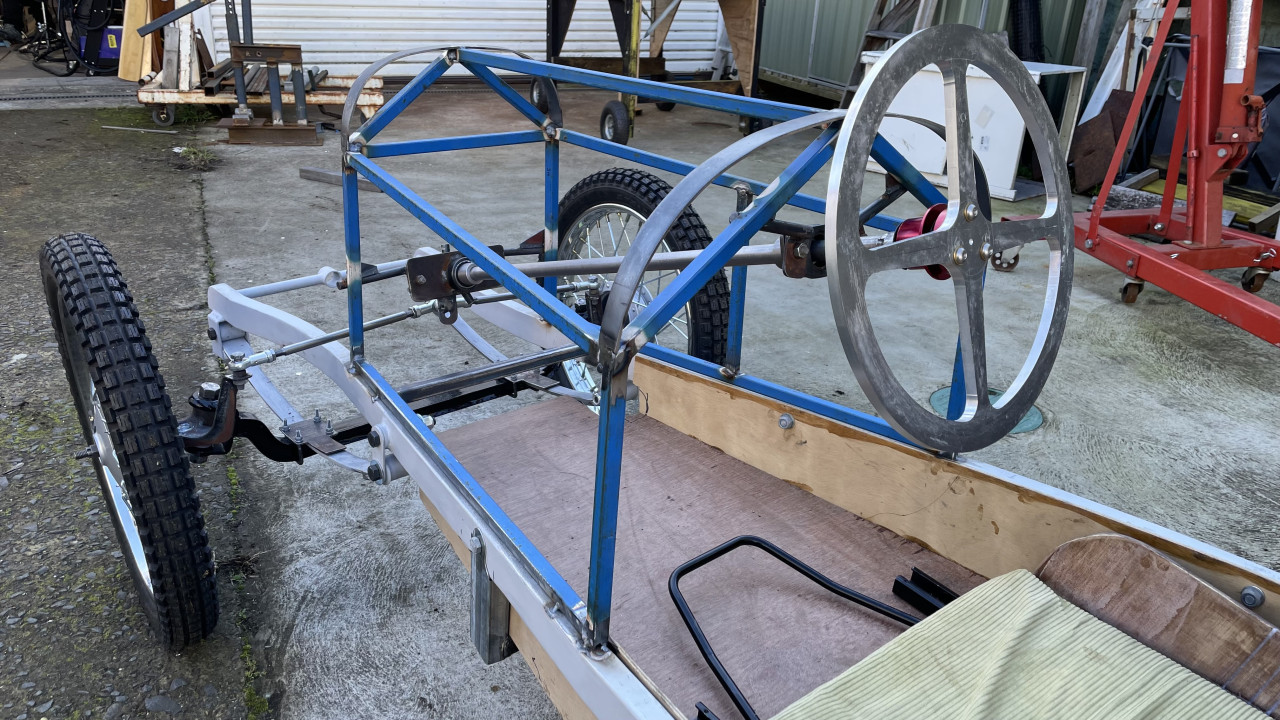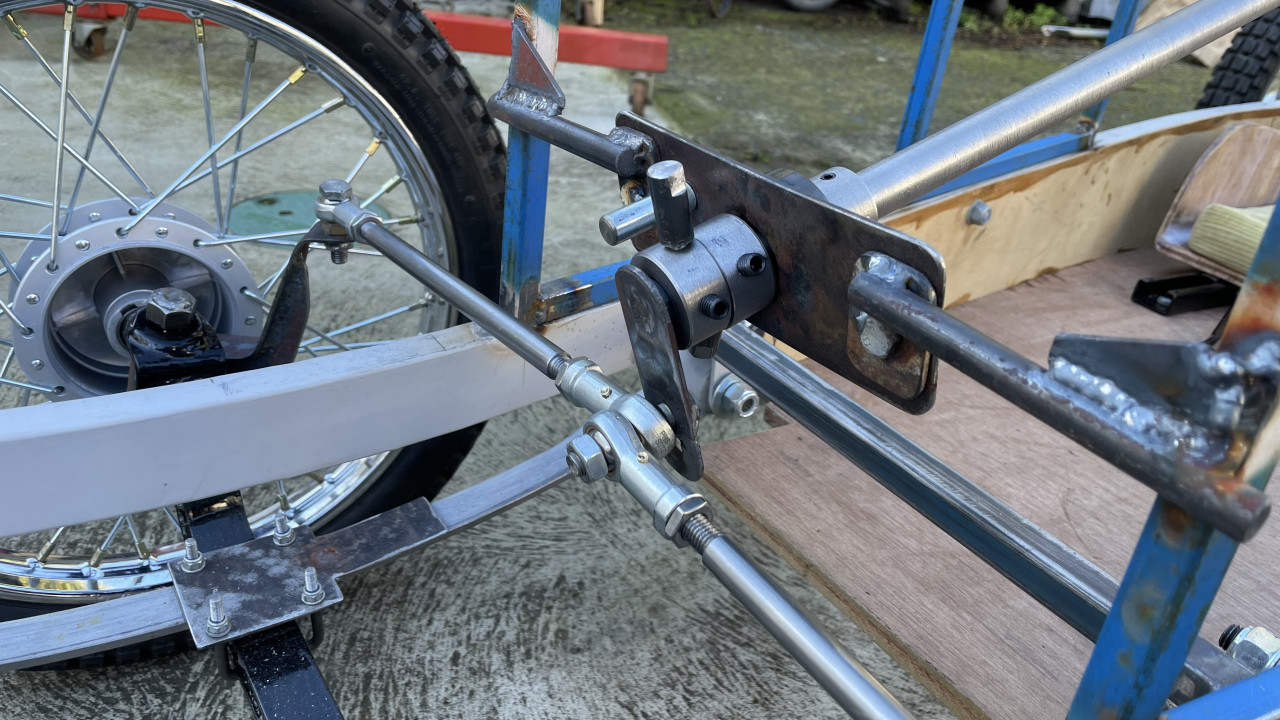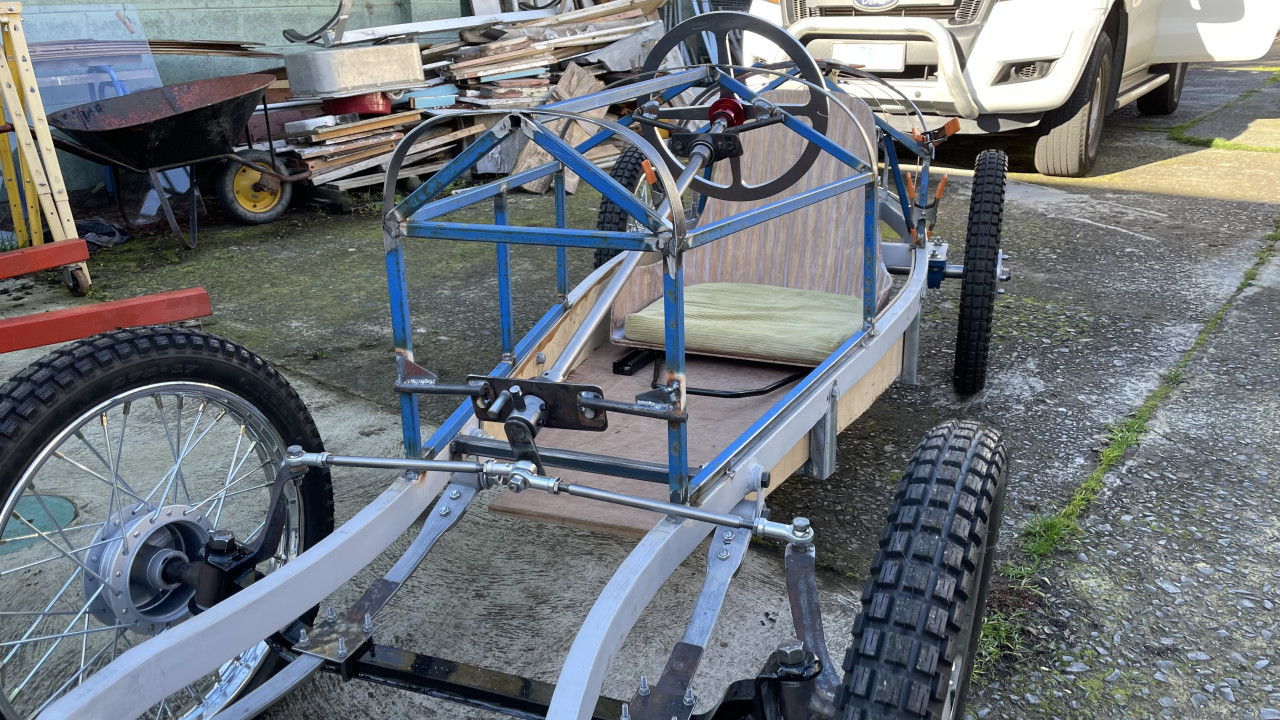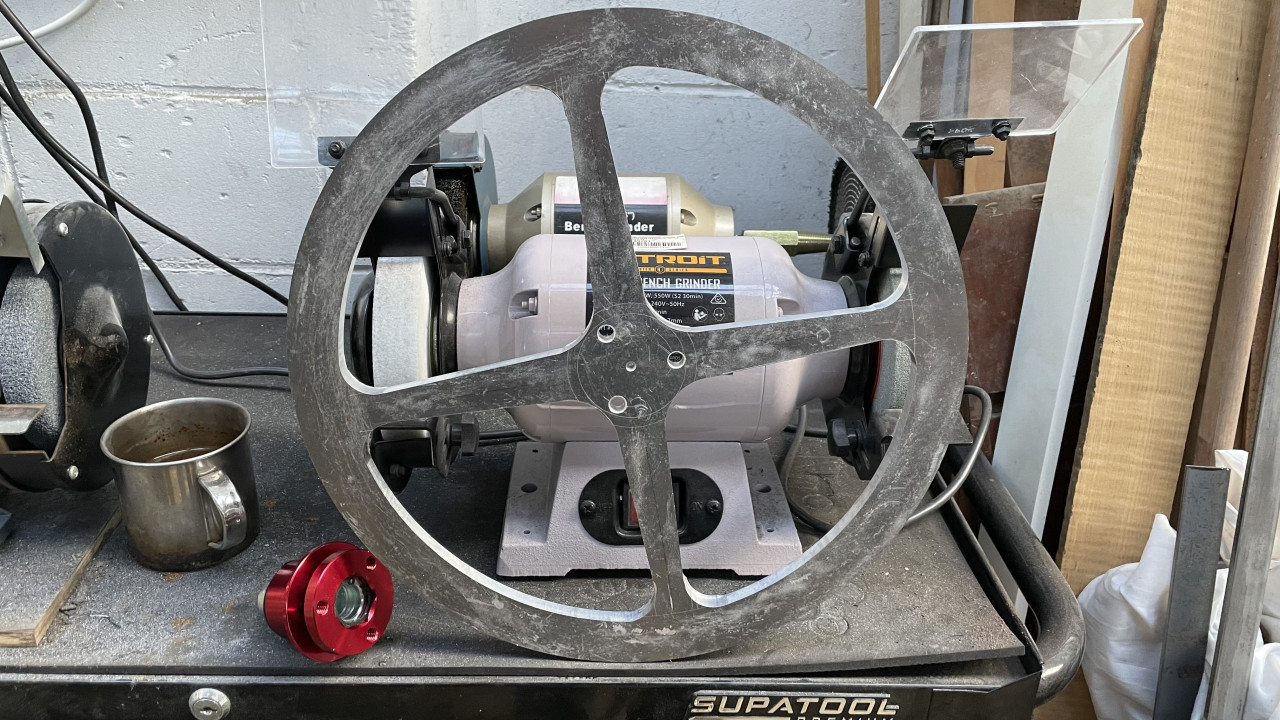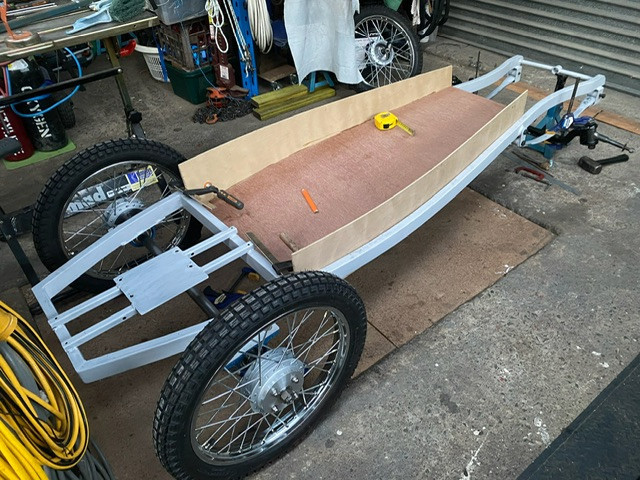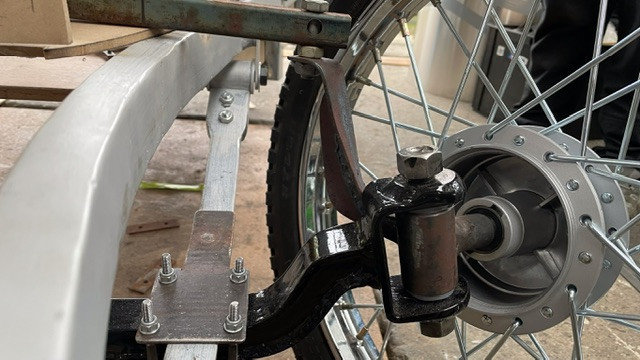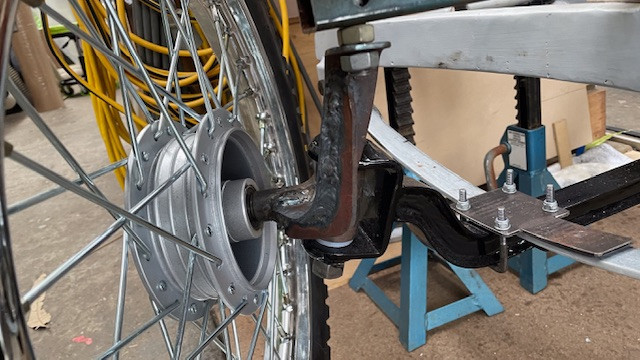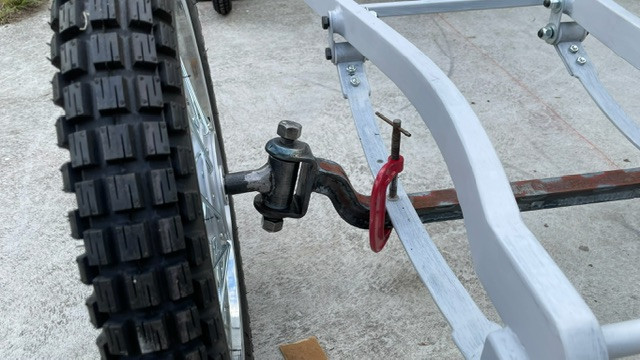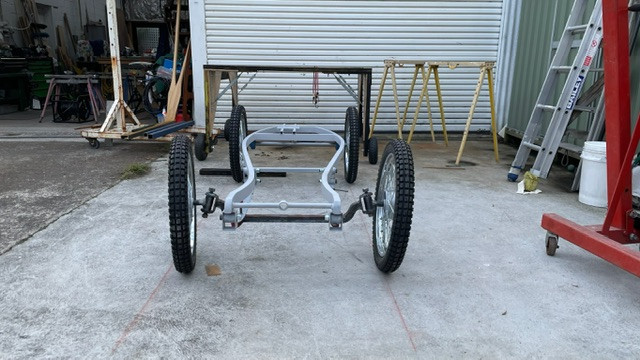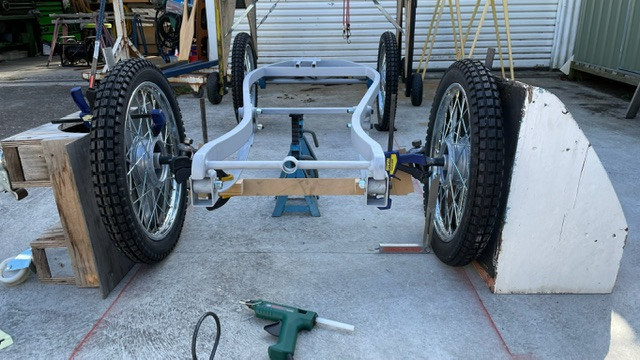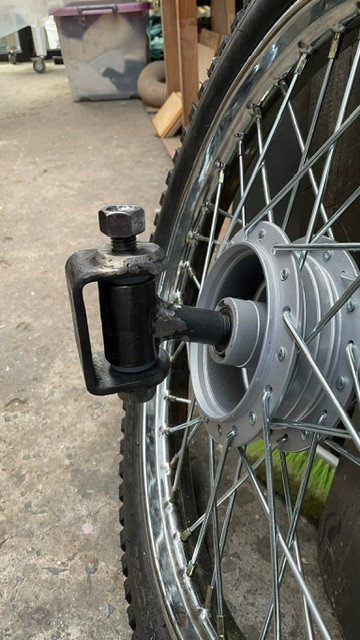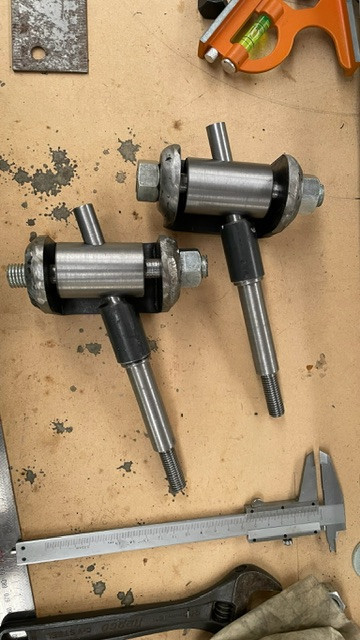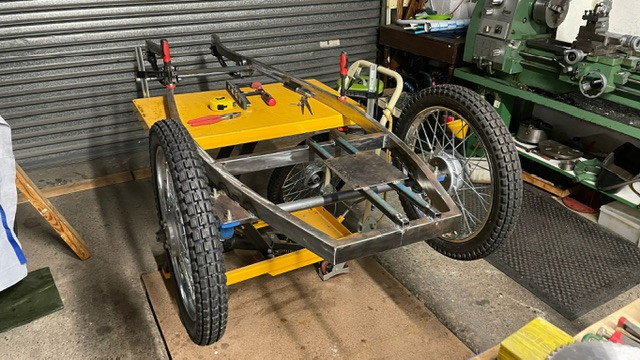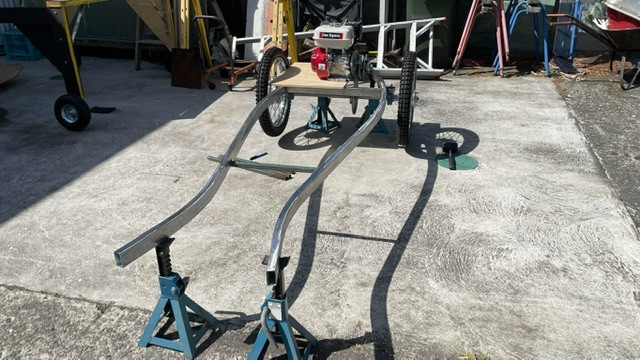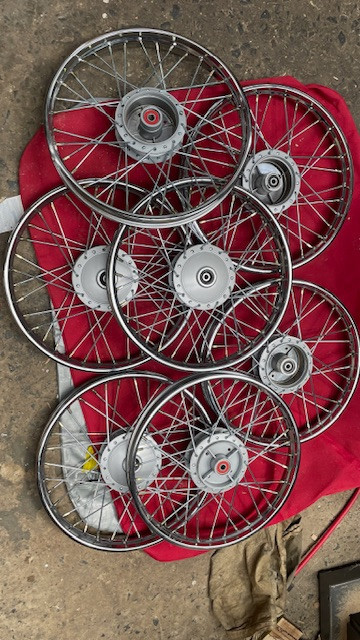Introduction
- Joined 1 year ago
- 2 Achievements
- 304 Points
Pinned Items
Recent Activities
-
Salutations
- General
- Sunday, 30 June 2024
I have been fascinated by these toys and envied groups that were local.
Consequently I make the offer to encourage this group.
We can meet in sheds perhaps.Post is under moderationStream item published successfully. Item will now be visible on your stream. -
Post is under moderationStream item published successfully. Item will now be visible on your stream.
-
Post is under moderationStream item published successfully. Item will now be visible on your stream.
-
Stream item published successfully. Item will now be visible on your stream.
-
How to make bonnet louvres
- Technical
- Wednesday, 30 October 2024
After reading Kingshill's post on making bonnet louvres for his 1930's Amilcar Build I thought it a good idea to capture it here in the forums for future reference.
https://cyclekarts.org.au/build-pages/1930s-amilcar
Thanks for sharing Post is under moderationStream item published successfully. Item will now be visible on your stream.
Post is under moderationStream item published successfully. Item will now be visible on your stream. -
Post is under moderationStream item published successfully. Item will now be visible on your stream.
-
Mick reacted to this post about 1 year agoRear bodywork structure
We’ve used some aluminium bar to create the framework for the rear bodywork. We worked up from the chassis adding elements as we went. The top ‘ribs’ for the bodywork were the most difficult thing to make as they need to be bent in two directions to match the almost conical shape. Some massaging of the bar resulted in...Rear bodywork structureMore
We’ve used some aluminium bar to create the framework for the rear bodywork. We worked up from the chassis adding elements as we went. The top ‘ribs’ for the bodywork were the most difficult thing to make as they need to be bent in two directions to match the almost conical shape. Some massaging of the bar resulted in the supports being able to achieve the required shape.Post is under moderationStream item published successfully. Item will now be visible on your stream. -
Mick commented on this post about 1 year agoWe’ve been busy working on the kart, but not keeping up with posts, so there is some catching up to do.
Bodywork
Some creative full scale CAD work has allowed potential bodywork to be looked at and fine tuned. The clearance of the body around the seat was fine tuned to allow enough elbow space for the driver. The rear bodywork was also looked...We’ve been busy working on the kart, but not keeping up with posts, so there is some catching up to do.More
Bodywork
Some creative full scale CAD work has allowed potential bodywork to be looked at and fine tuned. The clearance of the body around the seat was fine tuned to allow enough elbow space for the driver. The rear bodywork was also looked at to see if there would be enough clearance around the motor and transmission.100000Comments (1)Post is under moderationStream item published successfully. Item will now be visible on your stream. -
-
Mick reacted to this post about 1 year agoSteering this week. We’ve decided to make sure it is possible to remove the steering column from the kart if required in the future. To do this, the bearing carriers were attached to plates which are bolted to mounting brackets in the kart. We set up the steering column with the bearings in place before welding the brackets to the kart. ...Steering this week. We’ve decided to make sure it is possible to remove the steering column from the kart if required in the future. To do this, the bearing carriers were attached to plates which are bolted to mounting brackets in the kart. We set up the steering column with the bearings in place before welding the brackets to the kart. Establishing the correct length for the arm at the end of the steering column was a bit of a challenge, but we eventually found a length that works for the steering. A couple of adjustable limit bolts were added to ensure the steering doesn’t go past centre. The steering wheel as it is in the photos is the centre blank which has been machined from aluminium. The wheel will be finished off in time with some timber to form the outer grip. The wheel’s spokes will also be rounded a little to soften up the edges. We’ve decided to use a quick release hub for the steering wheel to facilitate getting in and out of the kart. The unit was found on eBay and has so far impressed us with its build quality and positive function. After assembling the steering some initial adjustment of the length of the control arms resulted in the kart steering quite well. During turns there isn’t any discernible scrubbing of the front tyres. If this style of steering proves to be too ‘fast’ resulting in a nervous ride, we might look at a more conventional steering rack.More
Post is under moderationStream item published successfully. Item will now be visible on your stream. -
Floor pan. The floor pan was build out of plywood with thin ply sides. The pan has about a 10cm tilt relative to the chassis. The pan has been dropped below the level of the chassis to lower the centre of gravity of the car. Two steel rails running crossways under the floor pan provide support. The rails are bolted on to allow the pan to be...Floor pan. The floor pan was build out of plywood with thin ply sides. The pan has about a 10cm tilt relative to the chassis. The pan has been dropped below the level of the chassis to lower the centre of gravity of the car. Two steel rails running crossways under the floor pan provide support. The rails are bolted on to allow the pan to be removed as required.More
Post is under moderationStream item published successfully. Item will now be visible on your stream. -
Steering arms. After getting the front axle into place, we looked at the steering arms. The goal was to get the steering components above the chassis rails to ensure clearance through the full suspension travel. Some CAD work resulted in patterns for the steering arms and their supporting struts. The location of the steering bolt is inline...Steering arms. After getting the front axle into place, we looked at the steering arms. The goal was to get the steering components above the chassis rails to ensure clearance through the full suspension travel. Some CAD work resulted in patterns for the steering arms and their supporting struts. The location of the steering bolt is inline with the steering knuckle axis and the mid point of the rear axle to create Ackerman steering geometry. Some bending of steel and dubious welding and it’s done. A bit of grinding then painting should tidy up the arms. We have fitted a temporary rod between the steering arms to keep the front wheels under control until the steering is completed. There was no discernible scrubbing of the front tyres during testing of the steering.More
Post is under moderationStream item published successfully. Item will now be visible on your stream. -
Mick reacted to this post about 1 year agoFront beam axle. With the chassis sitting on its rear wheels and level, the front wheels were propped up so the steering hubs were at the right castor and camber angles for the build. We’ve selected a castor value on the high side of typically recommended values to bias the steering towards tracking stability. With the wheels set at the right...Front beam axle. With the chassis sitting on its rear wheels and level, the front wheels were propped up so the steering hubs were at the right castor and camber angles for the build. We’ve selected a castor value on the high side of typically recommended values to bias the steering towards tracking stability. With the wheels set at the right angles, a pattern capturing the locations of the bottom of the springs and the steering knuckles was made using fibreboard and hot glue. With the pattern capturing the geometry the beam axle was built up from square steel tubing, steel plate cut to the shape of the curves up to the knuckles and steel strap top and bottom to tie everything together. After the beam was fabricated, we set the wheels up again to check the geometry was right then tacked the steering joints to the beam. With the wheels attached the kart could be rolled forwards despite the wheels not being tied together. We took that as a sign that the castor of the steering will work for us.More
Post is under moderationStream item published successfully. Item will now be visible on your stream. -
Nikki reacted to this post about 1 year agoSteering knuckles. Axles machined out of mild steel rod and run through the steering knuckle itself. We adopted this approach to ensure there is plenty of support for the axles. Knuckles have nylon bushings top and bottom to provide a bearing surface for the retaining bolts. The angle of the axle looks extreme, but is in line with other builds...Steering knuckles. Axles machined out of mild steel rod and run through the steering knuckle itself. We adopted this approach to ensure there is plenty of support for the axles. Knuckles have nylon bushings top and bottom to provide a bearing surface for the retaining bolts. The angle of the axle looks extreme, but is in line with other builds seen online. Being first time builders, we’ve gone for strength over light weight.More
Post is under moderationStream item published successfully. Item will now be visible on your stream. -
Nikki reacted to this post about 1 year agoChassis start. The outline of the chassis was scaled up from photographs and drawn onto a large sheet of fibreboard with the locations of major components also drawn on to check that the build will be more or less compliant with the guidelines for Cyclekarts. The chassis rails are 75x25mm steel box section which where shaped by slicing...Chassis start. The outline of the chassis was scaled up from photographs and drawn onto a large sheet of fibreboard with the locations of major components also drawn on to check that the build will be more or less compliant with the guidelines for Cyclekarts. The chassis rails are 75x25mm steel box section which where shaped by slicing segments out of the box section to allow the rails to bend and follow the outline drawn onto the fibreboard. The rails were then secured to the board and the segments TIG welded back up to fix the final shape. This approach was selected due to the lack of facilities to roll form the rails.More
Second image shows the chassis from the rear with engine supports in place.Post is under moderationStream item published successfully. Item will now be visible on your stream. -
Mick reacted to this post about 1 year agoWheels! 17 inch wheels, sourced online. Quality appears to be reasonable though they are not 100% true. Bearings will be replaced with ones which allow for larger diameter axles.
Post is under moderationStream item published successfully. Item will now be visible on your stream. -
Nikki reacted to this post about 1 year agoCreating a new page for the Amilcar build. We will add entries to the time line to roughly approximate the stages of the build.Post is under moderationStream item published successfully. Item will now be visible on your stream.
-
Post is under moderationStream item published successfully. Item will now be visible on your stream.
-
Post is under moderationStream item published successfully. Item will now be visible on your stream.
There are no activities here yet
Please log in to read the rest of the stream items. It is free to join !
Unable to load tooltip content.
